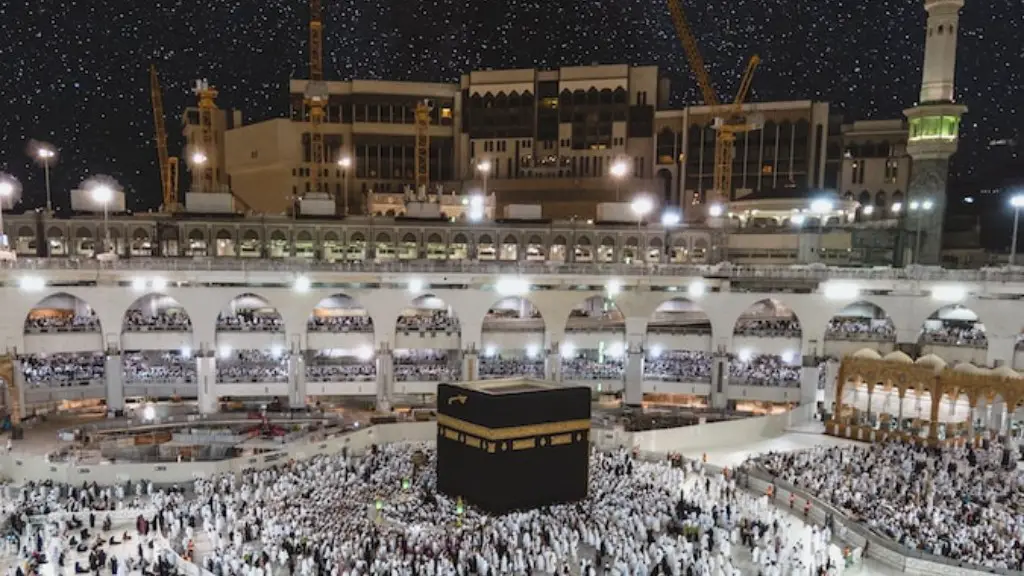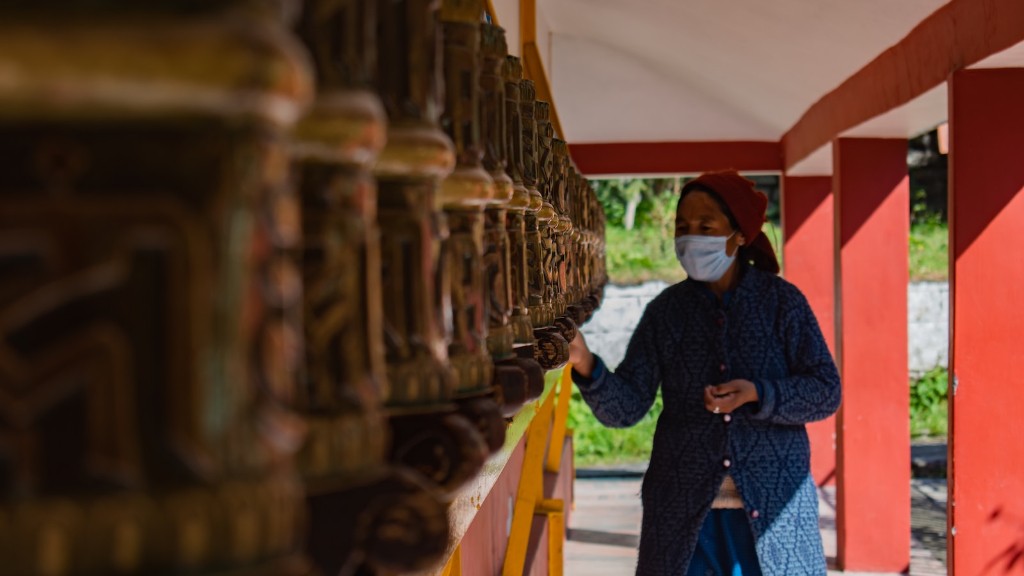What Is Hinduism?
Hinduism is the world’s oldest living religion, with origins believed to date back more than four thousand years. Hinduism does not have any single founder or holy book, but is instead a conglomerate system of beliefs brought together from many sources and branches over many centuries. Hinduism is based in the Vedas and is closely related to the religion of Buddhism. Hinduism is the dominant religion of South Asia and is practiced by between 800 million and one billion people worldwide, making it one of the largest and most widely practiced religions in the world.
What Do Hindus Believe About the Gods?
The main premise of Hinduism is that all living beings have an eternal soul, which can be reborn in one of any number of different physical forms. Hindus believe that humans can experience liberation from this cycle of death and rebirth by following certain spiritual paths and rituals. Hindus also believe in the concept of Brahman, the ultimate reality that permeates everything in the universe. The goal of a Hindu is to reach the realization that they are a part of this all-encompassing Brahman.
How Many Gods In Hinduism?
When it comes to the question of how many gods exist in Hinduism, the answer is quite complex. While there is a large pantheon of gods and goddesses in Hinduism, there is no one definitive number as beliefs about the gods, their purpose, and how to worship them vary from one sect of Hindus to the next.
The most commonly recognized gods are those in the Hindu pantheon collectively called the Trimurti. Shiva, Vishnu and Brahma are seen as the foundational members of the Trimurti, with a variety of other gods and goddesses, and their various forms, making up the rest of the pantheon. Hindus often venerate a particular member of this pantheon and most temples are dedicated to a single god or goddess.
Polytheism or Henotheism?
The debate over whether Hinduism is a polytheistic or henotheistic religion is an ongoing one. Polytheism is the belief in multiple and distinct gods, while henotheism is the worship of one god without denying the existence of other gods. While most Hindus might identify as polytheists, closer examination of their beliefs reveals a belief system which is actually closer to henotheism. Hindus often honor and venerate multiple gods but the concepts of Brahman, oneness, and the concept of all gods being manifestations of the one Supreme Being is at the heart of Hinduism, making it closer to henotheism than polytheism.
Gods And Their Representations
The Hindu pantheon is quite diverse and each member of the pantheon is associated with a particular animal, natural object, or human figure. Some of the most popular gods and goddesses include Ganesha, the elephant-headed god associated with auspicious beginnings, Shiva, the god of destruction, Vishnu, the preserver god, and Kali, the goddess of death and destruction.
Each god or goddess also has a particular weapon associated with them. Shiva carries a trident, Vishnu carries a conch shell, and Kali has a sword. Hindus venerate these gods and goddesses through rituals and offerings.
Sacred Scriptures Of Hinduism
The four Vedas are the foundational scriptures of Hinduism, which are said to have been revealed to four ancient priest-sages (rishis). The Vedas contain melodies, hymns, and prayers to the gods, as well as philosophical teachings. There are also a number of other scriptures, including the Upanishads and the epics of the Ramayana and the Mahabharata, which contain further teachings and stories about Hindu gods and goddesses.
Types of Hinduism
Hinduism is a diverse religion and there are a variety of different sects which vary in their beliefs and practices. Rituals, offerings, and beliefs vary from sect to sect. Vaishnavism is one of the largest sects, with a pantheon of gods and goddesses, centered primarily on Vishnu and his various avatars or incarnations. Shaivism is another popular sect which places emphasis on the worship of Shiva. In addition, there are other sects including Shaktism, dedicated to the worship of the goddesses, and Smartism, which seeks to honor all of the gods with equal importance.
Rituals and Celebrations
Hindus celebrate a variety of festivals throughout the year in honor of the various gods and goddesses in the pantheon. The two main festivals are Diwali, in honor of the goddess Lakshmi, and Dussehra, in honor of the god Rama. There are also rituals and ceremonies to celebrate important life events, such as weddings, birthdays, and the start of a new business. Hindus also practice daily rituals such as prayer, chanting, and meditating in order to honor and show devotion to the gods and goddesses of their particular sect.
Sacred Sites
Hindus often make pilgrimages to the various sacred sites associated with particular gods and goddesses. There are a variety of temples scattered throughout India and Nepal dedicated to the worship of the various gods and goddesses. The most important temple is located at the Kumbh Mela, a two-month long event which attracts millions of devotees from all over the world. Here, Hindus come together to venerate their deities and take a sacred bath in the Ganges river called the “Kumbh Snan”.
Conclusion
Hinduism is an ancient and complex religion which incorporates a variety of beliefs and rituals. It is impossible to pin down how many gods exist in Hinduism as there is no one definitive number and beliefs vary from one sect to the next. What is certain, however, is that Hindus revere and honor a multitude of gods and goddesses and show their devotion through rituals, celebrations and pilgrimages to the various sacred sites associated with each deity.

